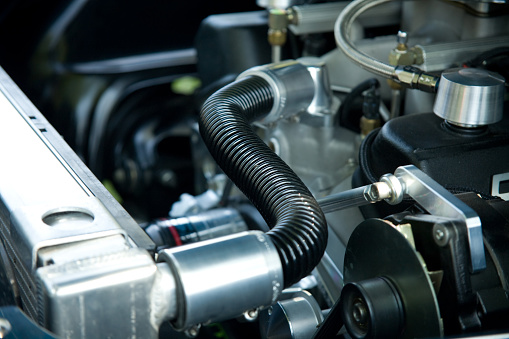March 27, 2023
CAN WATER DAMAGE YOUR CARS ALTERNATOR?
Water can potentially damage a car’s alternator, but it depends on the amount and duration of exposure. Alternators are designed to withstand some level of moisture, as they are typically exposed to elements like rain, snow, and humidity during normal operation. However, if water enters the alternator housing or if the alternator is submerged in water, it can cause damage to the electrical components and lead to malfunctions or failure.
If you suspect that your car’s alternator has been exposed to water, it’s important to have it inspected by a qualified mechanic as soon as possible. They can assess the damage and determine if any repairs or replacements are necessary to ensure that your car is running safely and efficiently.
What can ruin an alternator?
There are several factors that can lead to the failure of an alternator. Here are some of the most common ones:
- Age and wear: Like all mechanical components, alternators have a limited lifespan and will eventually wear out over time. The average lifespan of an alternator is typically between 7-10 years, depending on usage.
- Overloading: If you frequently use high-powered electronics in your car, such as a high-powered audio system, it can put a strain on the alternator and cause it to fail prematurely.
- Electrical surges: Electrical surges can occur when there are sudden fluctuations in the voltage of the electrical system, which can damage the alternator.
- Loose or worn-out belts: A loose or worn-out belt can cause the alternator to work harder than it should, leading to premature failure.
- Overheating: If the alternator gets too hot, it can cause the internal components to fail. This can happen if the cooling system is not functioning properly or if the alternator is overworked.
- Contamination: Dirt, debris, and other contaminants can get into the alternator and cause damage to the internal components.
- Faulty wiring or connections: If there are any issues with the wiring or connections to the alternator, it can cause it to fail or not function properly.
How do I protect my alternator from water?
To protect your car’s alternator from water damage, there are several steps you can take:
- Avoid driving through deep water: If you encounter deep water on the road, it’s best to find an alternate route. Driving through deep water can cause water to get into the alternator and other electrical components, leading to damage.
- Keep your car’s hood closed during rain: When it’s raining, it’s a good idea to keep your car’s hood closed to prevent water from getting into the engine bay and alternator.
- Replace worn-out or damaged belts: A worn-out or damaged belt can cause the alternator to work harder than it should, which can increase the risk of water damage.
- Keep your engine bay clean: Regularly cleaning your engine bay can help prevent dirt, debris, and other contaminants from getting into the alternator.
- Inspect your car’s electrical system regularly: Regular inspections of your car’s electrical system can help identify any issues before they become more serious and cause damage to the alternator.
- Park your car in a covered area: If possible, park your car in a covered area such as a garage or carport to protect it from rain and other environmental factors.
By following these steps, you can help protect your car’s alternator from water damage and ensure that it operates properly for as long as possible.
Do you need to cover the alternator when washing the engine?
It’s generally not necessary to cover the alternator when washing the engine, as long as you take certain precautions. However, it’s always a good idea to consult your car’s owner manual to see if there are any specific recommendations for cleaning the engine.
Here are some general guidelines for washing the engine without damaging the alternator:
- Avoid using a high-pressure washer: Using a high-pressure washer can force water and debris into the alternator and other electrical components, causing damage. Instead, use a low-pressure hose or bucket of water to wash the engine.
- Cover exposed electrical components: If there are any exposed electrical components, such as the battery or alternator, you can cover them with a plastic bag or other waterproof cover to protect them from water and debris.
- Use a degreaser: Before washing the engine, it’s a good idea to use a degreaser to break down any grease and grime on the engine. However, be careful not to get any degreaser on the alternator or other electrical components, as it can cause damage.
- Avoid spraying water directly onto electrical components: When washing the engine, be careful not to spray water directly onto the alternator or other electrical components. Instead, use a gentle stream of water and aim it away from these components.
- Dry the engine thoroughly: After washing the engine, it’s important to dry it thoroughly with a clean, dry cloth or air compressor. This will help prevent any water from getting into the alternator or other electrical components.
By following these guidelines, you can safely wash your car’s engine without damaging the alternator or other electrical components.

